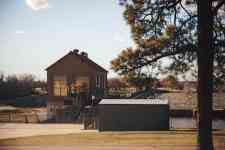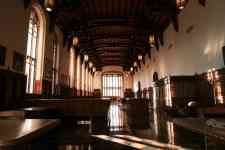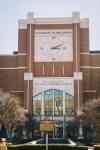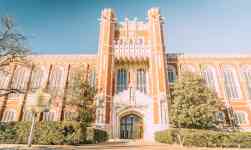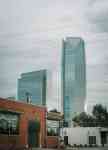Enid (Oklahoma)
Here is general information about Enid in Oklahoma
Enid statistic
| Coordinates | 36°24′2″N 97°52′51″W |
| Country | United States |
| State | Oklahoma |
| County | Garfield |
| Founded | 1893 |
| Elevation | 1,240 ft (378 m) |
| Time zone | UTC−6 (CST) |
| ZIP Codes | 73701, 73703 |
| Area code(s) | 580 |
| FIPS code | 40-23950 |
| GNIS feature ID | 1092626 |
| Website | www.enid.org |
| Government (Type) | Mayor-Council |
| Government (Mayor) | George Pankonin |
| Government (City Manager) | Jerald Gilbert |
| Government (City) | 74.04 sq mi (191.77 km2) |
| Government (Land) | 73.96 sq mi (191.56 km2) |
| Government (Water) | 0.08 sq mi (0.21 km2) |
| Area (City) | 74.04 sq mi (191.77 km2) |
| Area (Land) | 73.96 sq mi (191.56 km2) |
| Area (Water) | 0.08 sq mi (0.21 km2) |
| Population (2010) (City) | 49,379 |
| Population (2010) (Estimate (2019)) | 49,688 |
| Population (2010) (Density) | 671.82/sq mi (259.39/km2) |
| Population (2010) (Metro) | 62,267 (US: 134th) |
Other cities info:
Enid (/ˈiːnɪd/EE-nid) is the ninth-largest city in the U.S. state of Oklahoma. It is the county seat of Garfield County. As of the 2010 census, the population was 49,379. Enid was founded during the opening of the Cherokee Outlet in the Land Run of 1893, and is named after Enid, a character in Alfred, Lord Tennyson's Idylls of the King. In 1991, the Oklahoma state legislature designated Enid the "purple martin capital of Oklahoma." Enid holds the nickname of "Queen Wheat City" and "Wheat Capital" of Oklahoma and the United States for its immense grain storage capacity, and has the third-largest grain storage capacity in the world. In summer 1889, M.A. Low, a Rock Island official, visited the local railroad station then under construction, and inquired about its name. At that time, it was called Skeleton. Disliking the original name, he renamed the station Enid after a character in Alfred Lord Tennyson's Idylls of the King. However, a more fanciful story of how the town received its name is popular. According to that tale, in the days following the land run, some enterprising settlers decided to set up a chuckwagon and cook for their fellow pioneers, hanging a sign that read "DINE". Some other, more free-spirited settlers, turned that sign backward to read, of course, "ENID". The name stuck.
